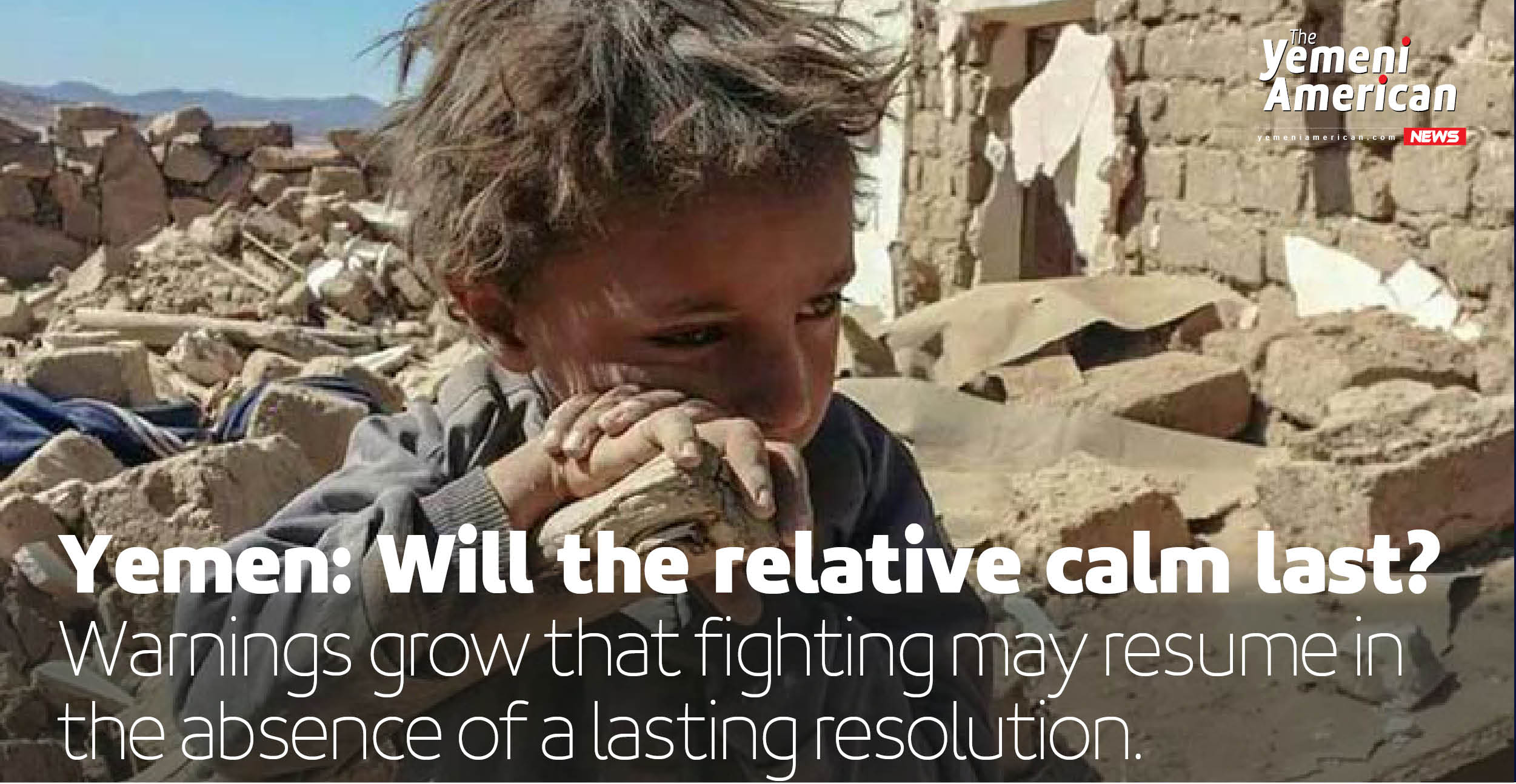Warnings grow that fighting may resume in the absence of a lasting resolution.
After the detente between Saudi Arabia and Iran and months of relative calm, the war in Yemen appeared to be heading slowly towards a long-awaited resolution.
But the United Nations’ top official in Yemen cautioned recently that fighting could resume if the warring sides do not reach a ceasefire deal.
Experts say the warning by Hans Grundberg, the UN special representative for Yemen, should serve as a wake-up call for the Yemeni sides to take advantage of regional factors and push to end the war.
“The risk of a flare-up is always there,” Grundberg told the Associated Press in August. “The situation remains fragile and will remain fragile until we have reached an agreement that offers a cease-fire agreement.”
Calls for inclusive process
Abdel-Bari Taher, a public intellectual and former head of Yemen’s journalists union, said Grundberg’s comments are accurate and important. He noted that while talks between the Houthis and Saudi Arabia are a positive development, what is needed is more transparency in the push towards a resolution.
Taher decried the exclusion of political parties, civil society groups, young people and women from Saudi-Houthi meetings, saying that keeping the discussions behind the scenes is an Achilles’ Heel to the peace efforts.
“It is crucial that the Houthis are engaging Saudi Arabia in dialogue as the main parties in the war. It is also important that Iran and Saudi Arabia are meeting,” Taher told the Yemeni American News.
But he stressed that talks at the top level are not enough, calling for inclusive discussions.
“We need to distinguish between two stages: The stage of meeting and agreeing to a permanent ceasefire and the stage of moving to political negotiations for a lasting solution,” Taher said.
“Negotiating a political solution does not only concern the warring sides. They cannot be the solution alone. All segments of society and all sides of the political spectrum must participate in the negotiated solution.”
Taher went on to outline steps that would help return peace and stability to Yemen: the lifting of blockades; exchanging prisoners on the basis of “all for all”; paying public sector salaries; allowing displaced people to return to their homes; releasing political detainees; and ending hate speech and incitement.
He also called for respecting Yemenis’ freedom to determine their own future and respecting the country’s independence and sovereignty.
The detente
Saudi Arabia first held talks with the Houthis in Yemen in April, weeks after Riyadh and Tehran agreed to restore diplomatic relations after years of hostility.
A prisoner exchange between the Houthis and the Saudi-led coalition followed. For many observers these were clear signs of a looming end to the war. But since then, the efforts to resolve the conflict have largely gone cold.
A push to officially renew the ceasefire that expired in October 2022 has not been fruitful, either. Although the warring parties have largely continued to hold their fire, experts say the halt in fighting remains too fragile.
Grundberg last month welcomed direct engagements between Saudi Arabia and the Houthis, saying that the talks could support UN mediation efforts.
But he had previously said that it takes action to end the war.
“The sides continue to display general willingness to seek solutions, but this still needs to translate into concrete steps, in particular, a clear agreement on the way forward that includes restarting an inclusive Yemeni political process,” Grundberg said earlier in August.
Meanwhile, the humanitarian crisis continues to rage in the country despite the decrease in violence, underscoring the need for actual peace, not just absence of fighting.
Earlier this year, the UN’s World Food Program announced that it would suspend its malnutrition prevention interventions in Yemen “due to critical funding shortfalls”.
Around half Yemeni households have reported inadequate food consumption as the ghost of famine continues to hang over the country.
Yemen is also seeing a surge of measles cases amid lack of access to vaccination.
Who is resisting peace efforts?
Veteran journalist Dhuyazen Mukhashaf said it appears that regional diplomatic talks have failed to produce results towards a resolution of the conflict in Yemen.
“The chances of the return of the war have not disappeared in Yemen since the conflict broke out nine years ago,” Mukhashaf told the Yemeni American News.
He warned that Yemen could be staring at another decade of a war of attrition.
“The only thing left for the UN envoy and his organization is to reveal the facts and admit failure and point out the side or sides creating obstacles to peace and wishing to prolong the war,” Mukhashaf said.
“There must be a clear and frank UN push to name that Yemeni side that is resisting peace efforts.”













